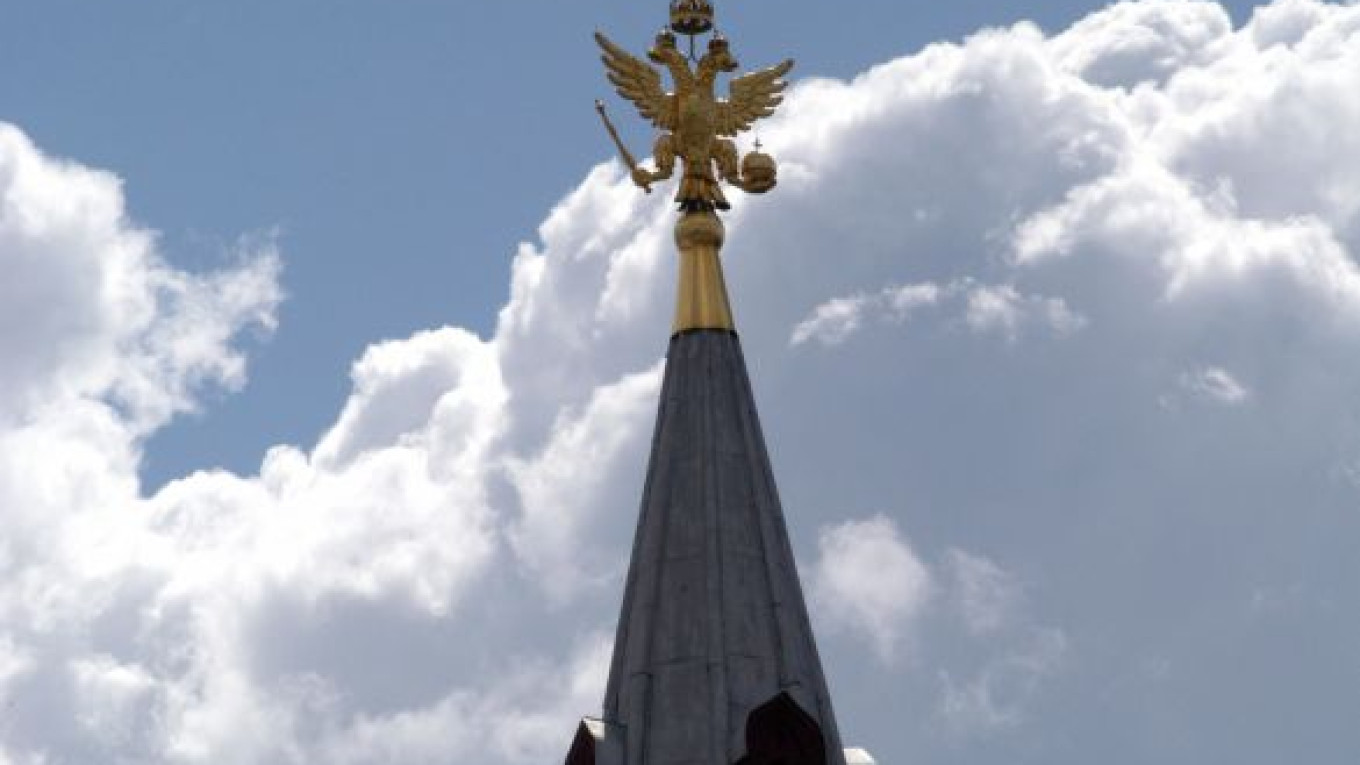The state's commission on innovation has approved the first project for the Skolkovo innovation city: a 900 million ruble business incubator designed by Almaz Capital Partners to develop so-called cloud computing and other technologies.
Kremlin economic aide Arkady Dvorkovich, the modernization commission's secretary, told Vedomosti that the body held its first discussion of potential projects for the city on Wednesday. The commission received 50 applications, of which it has considered four, he said.
"Only one has pretty much been approved," Dvorkovich said. "It's a project from the fund Almaz Capital to create business incubators in the sphere of 'cloud' programming."
It should be a rapidly growing field, he said. "The project's initiators have serious ideas on how to make it innovative. Independent experts convinced us of its prospects."
Cloud computing involves the use of tens or hundreds of thousands of computers to perform complex mathematical operations over the Internet. One example was the SETI project started in the United States in 1995, which aims to find extraterrestrial intelligence using a network of personal computers studying data from radio telescopes.
The project's developers plan to focus on three areas, according to a copy of their presentation obtained by Vedomosti. In addition to cloud computing, they want to work on computerized speech recognition and technology to transmit 3-D images across the Internet.
A seed fund of $30 million to $35 million — or about 900 million rubles — will finance the development. The program hopes to attract half of the capital from the state and half from the fund Almaz Seed, which will be created by Almaz Capital and private investors including Almaz Capital managing partner Alexander Galitsky and Parallels chief executive Sergei Belousov.
The size of investments by the Almaz Seed shareholders was not included in the presentation.
The developers of the "cloud" incubator also plan to attract up to $5 million in outside investment for the seed fund. In seven to nine years, six or seven companies will be created and have a combined capitalization of between $500 million and $1 billion, the presentation said.
Galitsky declined to comment, while Belousov could not be reached. The European Bank for Reconstruction and Development, a shareholder in Almaz Capital, supports the project but is not yet ready to discuss its details, EBRD spokesman Richard Wallis said.
The investment scheme approved by the presidential commission is unusual for business incubators, said Alexander Chachava, the president of Leta Group.
If the incubator is created at least partially to meet the state's needs, then the state usually takes on almost all of the direct investment in the projects and infrastructure, he said. When the purpose is commercial innovation, the state typically does not invest, offering support through tax and customs breaks, liberalized legislation and so forth.
Having the state as a 50 percent investor in a venture project is nonsense, Chachava said.
There are already serious advances in cloud technologies in the West, and creating Russian versions from scratch does not make economic sense, said Ruslan Zayedinov, deputy chief of systems integration firm Croc.
The $30 million figure, particularly if it is split across three directions, is a very small budget, he said, adding that companies like IBM or HP invest billions of dollars in such projects.
Zayedinov said he thought that it would be more reasonable to use existing designs and adapt them at Skolkovo to meet Russian consumers' needs. Using an open-source program as the basis would make Almaz Capital's investment project attractive to developers, he said.
A Message from The Moscow Times:
Dear readers,
We are facing unprecedented challenges. Russia's Prosecutor General's Office has designated The Moscow Times as an "undesirable" organization, criminalizing our work and putting our staff at risk of prosecution. This follows our earlier unjust labeling as a "foreign agent."
These actions are direct attempts to silence independent journalism in Russia. The authorities claim our work "discredits the decisions of the Russian leadership." We see things differently: we strive to provide accurate, unbiased reporting on Russia.
We, the journalists of The Moscow Times, refuse to be silenced. But to continue our work, we need your help.
Your support, no matter how small, makes a world of difference. If you can, please support us monthly starting from just $2. It's quick to set up, and every contribution makes a significant impact.
By supporting The Moscow Times, you're defending open, independent journalism in the face of repression. Thank you for standing with us.
Remind me later.


